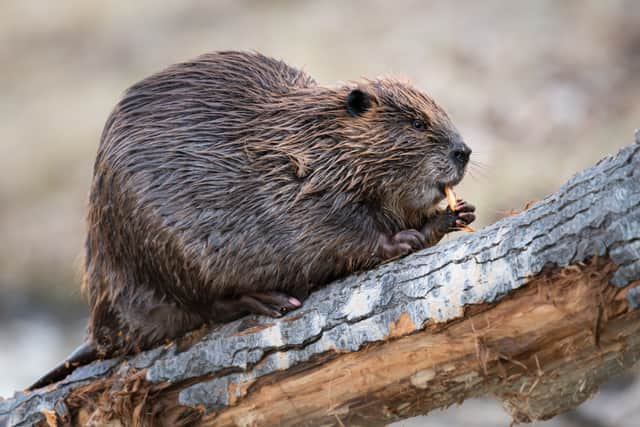Beavers to return to London for first time in 400 years as part of ‘exciting’ urban rewilding project
and live on Freeview channel 276
Beavers will return to west London for the first time in 400 years as part of a rewilding project to show how they can be managed in an urban setting.
A breeding pair of Eurasian beavers could arrive at their new home in Paradise Fields in Ealing as soon as this autumn after receiving funding from the capital’s mayor, Sadiq Khan.
Advertisement
Hide AdAdvertisement
Hide AdConservation groups received £40,000 from Khan to create the publicly accessible reintroduction site - the first of its kind in an urban setting in the UK.
Dr Sean McCormack, vet and chair of the Ealing Wildlife Group, said the group is “so excited” for the project.
It is viewed as an important step in the rewilding project as wild beaver populations in Kent and Oxfordshire move closer to London.
‘We are hoping to challenge perceptions’
The group hopes the planned wetland will show how beavers can be managed in an urban setting, including monitoring flood mitigation effects.
Advertisement
Hide AdAdvertisement
Hide AdDr McCormack told the Guardian: “Many people assume beavers are a wilderness species, when in fact we’ve just forgotten how closely we used to live alongside them. We’re so excited to study how beavers interact with an urban river catchment and, crucially, with urban communities.”


Elliot Newton, co-founder of the rewilding organisation Citizen Zoo, added: “We are hoping to challenge perceptions, and demonstrate how London, too, can embrace these ecosystem engineers as we strive for a healthier, wilder future in which our capital can become a leader in urban rewilding,”
The project is one of 22 across London to receive support from the Mayor as part of the Rewild London Fund, helping to bring other animals such as bats and bees to the city.
Other projects include setting up a pollinator corridor through Thamesmead, south-east London, to boost the number of rare Shrill Carder bees.
Advertisement
Hide AdAdvertisement
Hide AdParts of Barnes Beverley Brook in Barnes, south London, will also be rewilded to encourage bats, fish and birds while around 3,000 square metres of wildflower meadows are set to be created at Beckton Park Meadows in Harrow, north London.
The 22 projects will enable around 116 hectares of priority habitat to be restored or created, the equivalent to five St James’s Parks.
Khan has now announced an extra £1 million will fund new rewilding projects that restore habitats and look to bring species back to London.
The money will also be used to fund a new wild space as large as 140 football pitches. The London Rewilding Taskforce has found 11 potential 100-hectare sites to be transformed into the capital’s first area dedicated to rewilding.
Advertisement
Hide AdAdvertisement
Hide AdAreas that could be rewilded include Ruislip Woods in west London, Enfield Chase in north London, Thames Marshes in Bexley or the Bromley Downs in the south of the capital.
Khan said: “Despite the harm inflicted on the natural world, we have the power to make amends, and I am committed to ensuring that London is at the vanguard of efforts to reverse the trends of declining biodiversity and the destruction of nature. Rewilding allows nature to take the lead and is an exciting way to create healthier ecosystems and allow humans and wildlife to live together more harmoniously.”
Some experts suggest there are hundreds of beavers living wild along England’s waterways.
Last year they were given legal protection in England with it now being illegal to kill or harm them as they are formally recognised as native wildlife. The animals were hunted to extinction in the UK 400 years ago for their fur, glands and meat.
Advertisement
Hide AdAdvertisement
Hide AdThey began to reappear after government-licensed beaver releases took place within enclosures - as well as illegal releases taking place around the country.
Environmentalists hope the upcoming rewilding project for beavers will help pave the way for the animals to be finally released into the wild.
Comment Guidelines
National World encourages reader discussion on our stories. User feedback, insights and back-and-forth exchanges add a rich layer of context to reporting. Please review our Community Guidelines before commenting.
